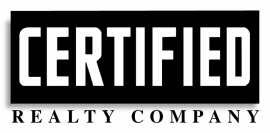
Who’s Got A Secret?
On many Realtor property listings, there are sections reserved for ‘private remarks.’ This private information is usually intended for real estate agents. What are these ‘private remarks,’ do they include information potentially helpful to buyers…and why are they marked private?

Property Information Basics
A ‘listing sheet’ or ‘MLS printout’ is property information accessed by licensed real estate agents or appraisers from a multiple listing system, or MLS. Two of Oregon’s largest MLS systems include the Portland-based RMLS and Salem-based WVMLS. While these two separate systems are indeed based in Portland and Salem, they each serve
significantly broad regions, serving much of Oregon.

‘Inside Baseball’
Without getting too deep into Realtor minutiae, as a rule of thumb, public remarks are commonly used for general property information and private remarks are sometimes reserved for items helpful to agents in performing their job. Some of the comments marked ‘private’ are best not disclosed, except on a ‘need to know’ basis.
Standards of Care
It’s helpful to understand that Realtors are taught to exercise ‘standards of care’ with multiple listing information. Therefore, privileged remarks marked ‘private’ command caution by real estate professionals, since some of the information is provided with an expectation of privacy and discretion.

Realtor Duties
In addition to guiding buyer clients on a home tour, some other Realtor duties include common courtesies, like knocking first before entering, returning keys after accessing any Realtor lockbox, leaving a business card to let a seller know the home was shown and securing the home upon exit. In the course of performing their duties, it’s frequently helpful for Realtors to know certain details about the property, along with any specific showing instruction preferences. Not all of these details are necessary for buyers to know. But if the power is off, you can imagine how helpful it is for Realtors to be aware ahead of time that it’s best to show such properties during daylight.
Trustworthiness
Along with these common courtesies, Realtors are entrusted to maintain privacy and protect both buyers and sellers, even if they are not formally representing them. The adage ‘first, do no harm’ is applicable in both medicine and real estate. It’s also helpful to know that before becoming an Oregon Realtor, prospective agents are vetted by the state. They also undergo a criminal background check, which includes a mugshot and having that agent’s fingerprints on file. As a result of being approved to work with the public, Realtors are expected to exercise good judgment with any information deemed private. For more information on the trustworthiness of real estate agents, check out the article and podcast ‘Can I Trust My Realtor?’ here.

For Your Eyes Only
Some examples of private information commonly provided to agents might include where a Realtor lockbox is located on a home, such as the front door, the back door, or a natural gas meter pipe. This kind of helpful information can save time, especially when a house tour is made in Winter at night.

Is Anyone Home?
The occupancy status of a home is important for Realtors to know, too. That’s because if a home is vacant, it’s a good idea not to broadcast that fact, lest it become a target for opportunistic thieves. Other private information might include personal seller and/or tenant phone numbers, if a 24 hour tenant notice is necessary to show the property, if the home’s occupant is a ‘day sleeper,’ along with simple warnings, like ‘beware of dog,’ or ‘please don’t let the cat out!’ Occasionally, specific information directed at agents may also be helpful to buyers. This might include if there’s a home repair underway but not completed, if there are repair bids available for viewing, along with many other possible helpful details.

For The Record
Some home information is public record, though it’s not always easily found. Otherwise, private notes by a seller’s Realtor, along with a seller’s property disclosure form, can provide buyer’s agents with some foreshadowing of what to expect before touring a home. This can save time and inconvenience. For example, is the house not financeable? Are there foundation, roof or other repair issues? Imagine touring a home at night, when viewing roof and siding condition can be especially tricky. Is the house a cosmetic fixer-upper? Does it have strong pet odors? Is the house located right next to a cemetery? Realtors working with buyers appreciate such information, in case certain non-negotiable factors won’t work for their client.

The State of an Estate
One helpful fact for the seller’s Realtor to mention is if a property being sold is held by an estate. Making note of this in a private remarks section can help real estate agents better manage expectations. That’s because in the case of an estate, a buyer’s Realtor is then in a better position to explain to the client that expecting a response to any offer within hours, or even a day may not be practical. With some estates, families need time to make decisions as a group. In addition, the personal representative/executor/executrix may live out of the area, or the sale could require input from an attorney who may not be available on weekends. The bottom line is that certain helpful pieces of information can provide Realtors with a notice of what to expect when crafting an offer and counseling buyers.
Sample Private Remarks Section
Sometimes information in a private MLS remarks section will include little in the way of confidential material. Instead, it will help provide Realtors with the kind of information designed to help determine if it’s a good ‘fit’ for their buyer client:
![]()
The above remarks inform Realtors that unless their buyer has cash and is willing to take on potential repairs for a ‘fixer’ home, this property may not be a good match for them. Because time is a rare commodity among real estate agents, such ‘shorthand’ comments can prevent a Realtor from spending half a day or more driving to and from a distant property, only to determine that the property is a poor ‘fit’ due to condition and seller requirements.
Exclusions
One type of private remark Realtors sometimes see on a listing sheet is when a specific prospective buyer is ‘excluded’ from a listing. It’s helpful for agents to know a given buyer has shown interest prior to a home being placed for sale. Why is this helpful? It prevents Realtors from unknowingly representing someone who already has an understanding or agreement in principal with a seller and also places Realtors on notice of a potential purchaser for the property. Because buyer ‘exclusions’ frequently have a certain time frame in which the excluded party may make an offer once a property is placed for sale, a buyer’s agent may suggest waiting until the excluded party’s time limit is ‘up’ before falling in love with the property. That’s because sellers sometime make ‘sweetheart deals’ with an excluded party, especially if there is already an established relationship in place, or if they’re related to such a prospective buyer.

Few Sharks in These Waters
Most Realtors are honest. Yet is there something inside a Realtor’s ‘private remarks’ section being withheld from you that you absolutely need to know? Probably not. In addition, Oregon real estate disclosure laws are clear. While there are a few disclosure exemptions among sellers who are trustees, banks, or those who receive a property via foreclosure, if there is a known property defect, in Oregon sellers are obligated to disclose it. As a result, it’s helpful to understand that there is a balance between maintaining the safety and privacy of a seller or tenant and providing a buyer with necessary information in order to make an informed home purchase.
What Property Disclosures Are For
With few exceptions, Oregon homesellers are supposed to disclose items like if a house has faulty wiring, a leaky roof or a basement that floods. And while this information might sometimes be found in an MLS ‘private remarks’ section, more commonly it’s on a seller’s property disclosure form. However, sometimes negative information in hidden places isn’t shared by sellers with their Realtor, or even known by the sellers themselves. Examples might include dry rot under floors or seasonal standing water inside a crawl space.

Stigmatized Properties
Not everything a buyer would like to know is necessarily disclosed in a seller’s property disclosure form. Let’s take, for example, the case of stigmatized homes, which we covered in this previous Oregon Real Estate Podcast program. In Oregon, it’s not required that sellers disclose that someone died inside a home. So just because something like a death inside a home isn’t required to be included in a property disclosure form or in an MLS ‘private remarks’ section is no assurance that buyers may not want to know it.

‘Take It To The Limit’
Sometimes private remarks include mention of a seller having ‘limited representation’ by a Realtor. This isn’t super common, but it alerts a buyer’s real estate agent of whom to contact in certain instances. As you may suspect, limited Realtor representation is different than when a seller receives full service representation. Full service is where a seller’s Realtor oversees key aspects of a home sale. Instead, limited representation is an arrangement where usually in exchange for a lower fee, a seller is ensured inclusion in a Realtor MLS (multiple listing system), but frequently little else. So in exchange for that negotiated reduction in commission, the seller essentially agrees to ‘play Realtor’ and otherwise handle the multiple duties of a real estate agent. This often includes marketing the property, scheduling showings, pre-qualifying buyers, reviewing offers, dealing with the buyers’ lender and appraiser, coordinating with the title company and basically everything except placing the property in the Realtor MLS.
After the Sale
Realtors are often contacted by appraisers after a home sells, because in the course of their work, appraisers use sold properties as comparables for a current appraisal they may be working on. If a Realtor hopes to lessen those calls from appraisers verifying specific transaction information, some agents insert related comments into the private remarks after the transaction closes. This might include verbiage like “There were $6,700 in seller paid closing costs for this sale.”  Agent Commissions
Agent Commissions
Another area separate from the ‘private remarks’ section that is intended for Realtors alone is the commission paid to the buyer’s agent, also known as ‘buyer’s agent compensation,’ or BAC. This lets the buyer’s Realtor know what they will receive upon successfully closing that transaction.

‘Up On A Tightrope’
It’s helpful to know that agents sometimes walk a bit of a ‘tightrope’ when handling ‘private’ Realtor remarks, which are sometimes released on a ‘need to know’ basis. Maintaining a seller’s privacy, while disclosing to buyers the information they need requires Realtors to exercise good judgment and common sense.

Thinking of Selling Your Oregon Real Estate?
Using the convenient form below, contact Certified Realty, host of the Oregon Real Estate Podcast for a free consultation on what your property could sell for in today’s market.